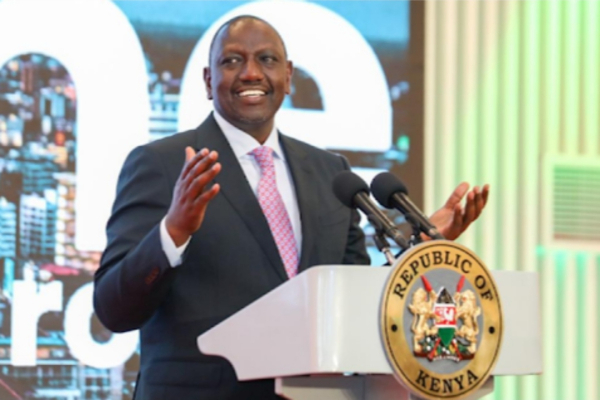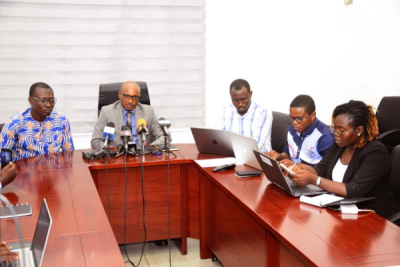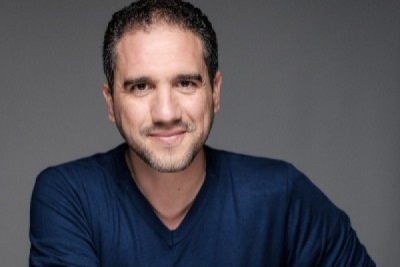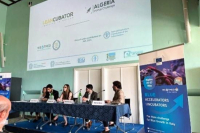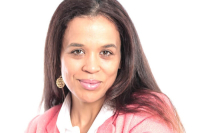With the exponential growth of global platforms like YouTube, TikTok, and Facebook, the number of digital content creators in Africa has significantly surged in recent years. Governments want to capitalize on this trend to boost their revenues.
Kenya will now collect taxes from content creators. President William Ruto (photo) has approved proposed amendments to the Finance Act, 2023, concerning taxes and levies from digital creators.
Under the Act, payments made by taxpayers to content creators will now be subject to a 15% withholding tax. The tax is specifically applied to goods and services sold to content creators’ audiences. The text also proposes a tax on creators' paid content subscriptions and revenues generated on free content.
Last May, the law was amended and submitted to the government for approval, which was quick to respond positively, creating a sense of frustration among the country's young content creators. In their view, the proposed tax is too high for a growing digital economy, given that they receive minimal state support for content creation. On the government side, the new tax aims to diversify revenue sources, tackle poverty, and grow the digital economy.
It is one of the numerous taxes introduced in the 2023 Finance Act. Some of them broaden the tax base to include the digital space. They are expected to generate up to $2 billion in additional revenue for the Kenyan government.
Samira Njoya
In 2019, Raxio committed to building ten to twelve data centers in Africa. The company is growing rapidly and continues its expansion on the continent.
Raxio Data Centres, a Tier 3 data center provider focused on the African continent, announced on Wednesday, October 25, that it has secured $46 million in acuity funding from its existing shareholders Meridiam and Roha. The funds will be used to continue its expansion in African markets.
"This funding will help Raxio expand and consolidate its position as the provider with the widest geographic footprint of data centers in Africa at a time where demand for high-quality digital infrastructure in Africa continues to grow from both international and local businesses," said Brooks Washington, partner at Roha.
Various public and private players are injecting significant funds into the development of technological infrastructures on the continent. According to the International Telecommunication Union, Africa is home to less than 2% of the world's data centers, and the industry's global giants see this as an opportunity and are investing in several countries, including South Africa, Nigeria, and Kenya.
Earlier in the year, Raxio secured a $170 million loan from the Emerging Africa Infrastructure Fund (EAIF) and Proparco, the private sector financing arm of French development agency AFD, to accelerate its growth in Africa. The company is present in Uganda, Ethiopia, Mozambique, Côte d'Ivoire, the Democratic Republic of Congo, Angola and Tanzania.
Robert Mullins, President and CEO of Raxio Data Centres, explains that "this capital injection will allow Raxio to continue to expand its presence across the continent and to deliver the resilient mission-critical environments" Radio clients demand.
Adoni Conrad Quenum
Leading global companies, including Amazon, Microsoft, and Oracle, have shown their commitment to investing in the establishment of data centers across Africa. Simultaneously, local businesses are also actively positioning themselves within the market.
On Tuesday, October 24, Medallion Data Centres, a Nigerian data center operator, launched a new data center in Lagos. Named LOS2 Data Centre, it replaces LOS1, which has reached its maximum capacity but can now accommodate more data. LOS2 has a computing capacity of one megawatt (MW).
"The new Tier 111 Data Centre will help us to extend the current peering and connectivity process we had in LOS1, our first data center facility in Lagos that has reached its full rack capacity. We decided to build a second Data Center facility to accommodate more customers’ data," says Ikechukwu Nnamani, CEO of Medallion Data Centres.
Data center providers in Africa are increasing their investments in the sector due to growing demand on the continent. Digital Realty, the parent company of Medallion Data Centres, is part of this dynamic and aims to become a major player in the sector in Africa since acquiring Medallion in 2021. The firm has pledged to invest $500 million over ten years to accelerate the continent's digital economy.
"It is exciting now that we can build and expand on the LOS1 Data Centre facility and ready for our customers to continue to grow and expand their business and to also help make the internet infrastructure in Nigeria stronger and better," said Mike Collins, Vice President of Market Development at Digital Realty Group.
Adoni Conrad Quenum
Last Wednesday, October 25, Pascal Nyamulinda, Director General of the National Agency for the Identification of Persons (ANIP), officially launched anip.bj, the agency’s official mobile application.
The application aims to facilitate the acquisition of administrative documents, help users check the authenticity of those documents, and submit claims and complaints. For the time being, it is only available for Android devices.
Driven by a passion for technology and a strongdedication to sustainable agriculture, heconsistentlypioneers new ideas and challenges conventionalnorms. His contributions have not onlyrevolutionized the technologysector in Morocco but have alsosignificantlyinfluenced the country's agricultural economy
Amine Zarouk (photo) is the founder and CEO of Green OpenLab, a Moroccan startup offeringinnovativetechnological solutions for sustainableagriculture.
He graduated, in 2006, from Paris-East Créteil University (UPEC) with a master’s in distributed information systems. He alsoholds a diploma in key account sales force engineering, obtainedin 2007 from NEGOCIA, an international sales and commercial negotiation training center.
In 2021, fueled by his passion for new technologies and entrepreneurship, hefounded Green OpenLab, a pioneeringcompanydriving digital transformation in the industrial and agricultural sectors. The company supports agritech startups by providingcustomized technologies to foster efficient and sustainable agricultural practices. Its mission is to empowerfarmers by enhancingproductivity, optimizingresources, and modernizing agricultural value chains
Green OpenLabpromotes the adoption of digital tools for enhancing agricultural efficiencywhileprioritizingenvironmentalsustainability and resource conservation. Additionally, it serves as a dynamic hub for fostering innovation, collaboration, and practicaldemonstrations, catering to younginnovators, PhD students, and researchers.
Amine Zaroukisalso the co-founder and CEO of Stratfield, a joint ventureheadquartered in Casablanca. Foundedin 2021, the company has a delivery center and an innovation center in Fez, an expertise and training center in Tangier, and a subsidiary in Munich for technologytransfer.
Beforefounding Green OpenLab, heworked at Crédit Agricole Consumer Finance (Sofinco) in France ashead of developmenturbanizationin 2007. In 2008, heco-founded G-Fit Maroc, a companyfocused on outsourcing technology services, whichin 2014 joined the Alten Group and becameAlten Delivery. He led the companyuntil 2021.
Amine Zarouk has alsoworked for the Fédération des technologies de l'information, des télécommunications et de l'offshoring (APEBI), an organizationthatpromotes the development of the ICT sector in Morocco. Havingjoined the federationin 2011, hewas a member of the board of directors (2011-2019), president of the offshoring pole (2019-2020) and president (2022-2022) respectively.
Melchior Koba
The adoption of blockchain technology is swiftly gaining momentum throughout Africa. While the continent may not currently lead in resource mobilization, investments in the sector are rapidly gaining speed, benefitting numerous companies in the region.
On Monday, October 23, Uganda's Presidential Advisory Committee on Export and Industrial Development (PACEID) signed a memorandum of understanding with a TA-CargoX technology consortium comprising Technology Associates and CargoX, a blockchain-based document transfer company. The MoU aims to create TradeXchange, a national digital trade facilitation platform.
"The TA-CargoX Consortium will provide a robust, globally compliant digital trade platform as the surest means to integrate Uganda into the global trade network. This platform shall automate the import and export value chain, provide visibility in the trade supply chain, ensuring transparency, traceability, authenticity, and reliability in trade processes, as well as save cost directly for all participants," said Girisch Nair, Chairman of Technology Associates.
The new partnership is part of Uganda's ambitious goal to double its exports by 2026. PACEID aims to leverage this collaboration to support exporters, resolve trade bottlenecks, and easily comply with global trade standards, among other things.
TradeXchange will therefore be a blockchain-based collaboration platform that will streamline processes and improve the flow of information between farmers, producers, traders, and government agencies.
Once up and running, it will help the government reduce cargo release times, cut import compliance costs, and improve the efficiency of risk assessment when importing goods, tax revenue collection, and overall transparency of goods flow.
Samira Njoya
As an incubator, Leancubator organizes events, business growth programs, and challenges, helping to strengthen Algeria's innovation ecosystem.
Leancubator is a specialized Algerian innovation hub and incubator that supports sustainable and innovative projects in various sectors such as the blue and green economies, foodtech and fintech.
Founded in 2018 by Abdelfettah Herizi, Hichem Hadded, and Nesrine Ziad, it offers incubation and acceleration programs for startups, small and medium-sized enterprises, and project carriers offering solutions to Africa's social and environmental challenges.
For startups, it provides personalized assistance, including coaching sessions tailored to their specific innovative projects. Additionally, it facilitates access to a diverse network of investors and practical resources, such as workspace, meeting rooms, and essential IT equipment.
The incubator provides various programs, notably the renowned Algeria Startup Challenge, designed to fuel the growth of startups and innovative projects by offering them the necessary support, resources, and networks to materialize their innovative ideas.
Each year, the Algeria Startup Challenge holds challenges under various themes. In the framework of the fourth edition of the challenge, it launched the Harm Reduction Initiative Awards, an innovation challenge aimed at Algerian project promoters offering innovative solutions around best practices in risk reduction, such as industrial, food, health, road, and ecological risks, and so on.
Other challenges include the Fintech Startup Challenge for fintech, insurtech, and regtech, and the Foodtech Startup Challenge for agritech, aquatech and food safety solutions.
Since its creation, Leancubator has participated in over 3,000 projects and organized more than 40 innovation challenges. It has supported 350 startups and innovative projects and collaborated with over 50 economic and institutional partners. These partners include BNP Paribas, WestMED, and the Food and Agriculture Organization of the United Nations (FAO).
Leancubator has received several awards, notably recognition from the Ministry of Knowledge Economy, Startups, and SMEs, for its active role in fostering innovation and developing startups in Algeria. Additionally, it was honored as the top program for fostering skill development and innovation in the blue economy across the Western Mediterranean at the WestMED 2021.
Leancubator has also been recognized by Algeria's Commission d'Organisation et de Surveillance des Opérations de Bourse (COSOB) as an active player in supporting the development of fintech in the country. These activities and distinctions make the incubator a major player in innovation and entrepreneurship in Algeria and Africa.
Melchior Koba
Chronic diseases such as cancer, hypertension, and diabetes are recurrent causes of death in Africa. Nneka Mobisson is one of the entrepreneurs fighting to improve the management of these illnesses on the continent.
Nneka Mobisson (photo) is a Nigerian pediatrician and entrepreneur. She holds a Bachelor's degree in Mechanical Engineering from the Massachusetts Institute of Technology (1996), a Master's degree in Public Health from Emory University (1998), and a Master's degree in Business Administration from the Yale School of Management (2004).
She is also one of the co-founders and CEO of mDoc, a company dedicated to optimizing the end-to-end care experience for people suffering from chronic diseases such as diabetes, hypertension, and cancer. The idea for mDOc stems from Ms. Nneka’s realization of the huge gap in the African healthcare system, in 2010, following her father’s death from a massive stroke.
Leveraging the growing penetration of mobile technology, mDoc's digital platform connects people with chronic illnesses to a multidisciplinary team of healthcare practitioners. Experts can be reached from South Africa, Zambia, Rwanda, Kenya, the USA, the UK, and Nigeria. Patients can receive personalized support, through education and tools to improve self-management.
On September 25, 2023, the company was selected by Google as one of 30 artificial intelligence startups changing the future of healthcare. The other winners come from Europe, the Middle East and Africa.
Nneka Mobisson's professional career began in 1999 at the pharmaceutical company Merck, where she was a business analyst. She also worked at the World Bank as a consultant from 2003 to 2004. She was then hired as a resident physician at The Children's Hospital of Philadelphia. In 2007, she became a partner in the management consulting firm McKinsey. Before founding mDoc, she was the Institute for Healthcare Improvement (IHI)’s regional lead and Executive Director in Africa.
Her outstanding work has earned her several distinctions. In 2014, she was named Young Global Leader by the World Economic Forum. In 2017, she was a finalist in the Cartier Awards. A year later, she was elected to the Ashoka Fellowship, a “practical and personnel community for social entrepreneurs.”
Melchior Koba
In collaboration with its local and international partners, Jacaranda works to provide young people with the opportunities and skills they need to realize their potential and contribute to the progress of their country.
Jacaranda Hub is a Zambian organization that aims to develop the youth’s skills in the fields of information and communication technologies (ICT) and entrepreneurship through its innovation hub. Founded in 2017 by Mara Zhanet Michelo, who is its CEO, its mission is to enable young people to participate in the creation of socio-economic impact and business value.
"Jacaranda Hub’s idea is to find, build, and mold propitious entrepreneurs. I believe that entrepreneurship is the most impactful way of creating sustainable change and development. It stimulates local economic growth, creates jobs, and reduces poverty. Empowering ambitious innovators to solve problems by converting ideas into reality is the ambitious goal that motivated the journey we are embarking on," explained Mara Zhanet Michelo in 2022.
Jacaranda Hub has three thematic axes. The first, JAC-LEARN, offers safe, resource-rich learning spaces with ICT facilities to promote entrepreneurship education, digital literacy, creativity, accessibility, and the ability to use ICT. The second, JAC-STARTUP & INNOVATION, facilitates the creation of an entrepreneurial ecosystem focused on innovation and business development. It supports startups and the creation of viable small and medium-sized enterprises. The final area is JAC-LIFESTYLE, which explores and promotes the concept of social entrepreneurship, the idea of using business to solve major social and environmental problems.
The organization has set up several other initiatives. One of the best-known is the Next Generation National Youth Incubation Challenge for young people aged 18 to 35. The program strengthens young people's ability to design and develop businesses. It focuses on identifying innovative opportunities and supporting young innovators and entrepreneurs through the ideation, validation, and scaling of new products and services that benefit end-users and create successful startups.
It has also set up the Mosi-oa-Tunya Pitch, an investment-readiness program that matches viable startups with local and international investors. The program helps startups with high growth potential to design, measure, and adapt their activities and be ready for investments.
Thanks to Jacaranda Hub and all its programs, Mara Zhanet Michelo was awarded Woman of the Year in Technology at the Techtrends Zambia Awards 2022.
Melchior Koba
The Universal Postal Union has dispatched two technical experts to Chad as part of a mission running from Monday, October 23 to Friday, October 27. The experts will assess the operational readiness of the postal service operator SPTE and train staff on the use of the international mail processing platform (IPS.POST) and the customs declaration system (CDS.POST).
More...
In the past two decades, Africa has increasingly relied on satellite data to accelerate its development. Currently, around ten countries have established their space agencies and are actively pursuing strategies to accomplish their objectives.
On Tuesday, October 24, Senegal’s space agency ASES and the Regional Satellite Communications Organization (RASCOM) signed a memorandum of understanding and strategic partnership on the sidelines of the African Union-European Union Space Dialogue ongoing in Dakar. The agreement aims to strengthen and accelerate Senegal's digitization initiatives by harnessing the capabilities of satellite communication solutions.
As part of the partnership, the two organizations will implement projects to revolutionize various sectors –including telecommunications, agriculture, education, and health– in Senegal through the use of satellite technologies.
The memorandum of understanding reflects Senegal's commitment to becoming a pioneer in the use of space technology to foster innovation in Africa. It is part of the SenSAT space program launched by the government to meet the country's needs in space products and services and to make the space sector a key driver for socio-economic and sustainable development.
For RASCOM, the protocol aligns entirely with its mission of bridging the digital divide in Africa, ensuring comprehensive connectivity in a sustainable and viable way.
The successful implementation of the partnership will help bridge the digital divide in Senegal, by leveraging cutting-edge satellite communication technologies and providing essential public services to the entire population, including those in far-flung areas.
The agreement comes just a few days before the launch of Senegal's first satellite (due on November 10).
Samira Njoya
On Wednesday, October 25, the Guinean Ministry of Technical Education, Vocational Training and Employment announced the signing of a memorandum of understanding with the Chinese technology firm Huawei. The aim is to build smart classrooms at the Kindia Vocational Center and Camara Laye in Conakry.
The sector is digitalized after a pilot phase led by the Ministry of Tourism’s IT and startup development division.
Last Monday, October 23, Côte d’Ivoire presented SITD, its digital platform aggregating information about its tourism industry. Overall, the platform aggregates 22,641 operators, including 19,201 accommodation and catering establishments and 3,440 dedicated to leisure activities.
The platform aims to showcase Côte d’Ivoire’s tourist destinations, provide reliable data for strategic decision-making, and information on market trends throughout the country. It bodes well for the upcoming African Cup of Nations (AFCON) to be held in the country between January and February 2024.
For Tourism Minister Siandou Fofana, who presided over the presentation ceremony in Abidjan, it is a strategic tool unveiled at a time when the country is hosting an AFCON edition focused on innovation and hospitality. “I would like to reassure you that we are fully aware of the challenges posed by such a platform, particularly in terms of cybersecurity and data protection. Strong technical and organizational measures have been taken to ensure that all your information remains secure and compartmentalized," he said.
In recent years, Côte d'Ivoire has embarked on revitalizing its tourism sector. Authorities have taken several actions to promote the country as a leading tourist destination in West Africa. Last August, a three-year agreement was signed with French football club Olympique de Marseille to feature the "Sublime Côte d'Ivoire" brand at the club's stadium, and on their shorts, and training shirts.
During the AFCON Cup, the country will host over twenty football teams with their staff and supporters. In that context, the platform will help them geolocate travel agencies, restaurants, tourist sites, bars and nightclubs, hospitals, clinics, petrol stations, etc.
Adoni Conrad Quenum
The fintech segment is flourishing across Africa, with numerous African tech entrepreneurs striving to provide top-notch services in this sector. This drive has led to a proliferation of diverse fintech solutions.
Mukuru is a fintech solution developed by a South African startup and founded in 2004. It enables South Africans living in the country and the UK to send money anywhere in the world.
"With more and more digital access points over USSD, WhatsApp, and the Mukuru App, for instance, customers are becoming increasingly comfortable with things like self-sign up, including digital KYC and onboarding, which is not only raising our brand presence but is shifting customers that much closer to financial inclusion and higher levels of financial transaction sophistication," said Mukuru CEO, Andy Jury, in 2020.
The solution features a mobile app accessible on iOS, Huawei, and Android. After downloading the application, users can register for their Mukuru accounts with their personal details and access its services, including sending and receiving funds, making online transactions, requesting a Mukuru card, etc...
Thanks to Mukuru, users can send funds via WhatsApp or by dialing a USSD code. The solution aims to reach as many people as possible. In addition to the services listed above, the startup enables users to subscribe to a funeral cover service –A service where users contribute towards a lump sum payment to beneficiaries in the event of one’s death.
The fintech wants to expand to more countries, starting with Southern Africa. Since its launch, the Android version of its mobile application has already been downloaded more than 100,000 times, according to Play Store data.
Adoni Conrad Quenum


